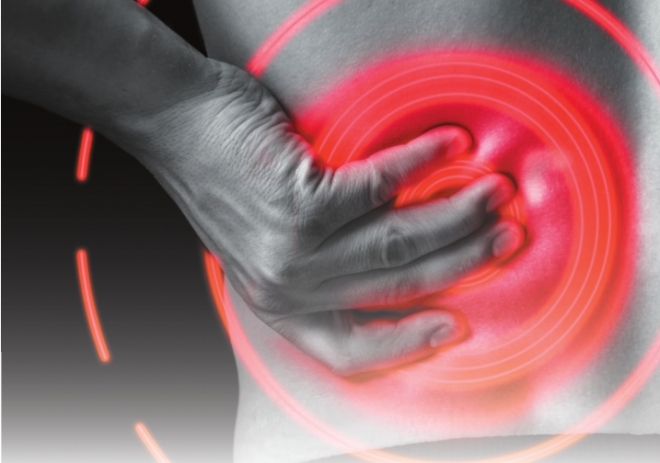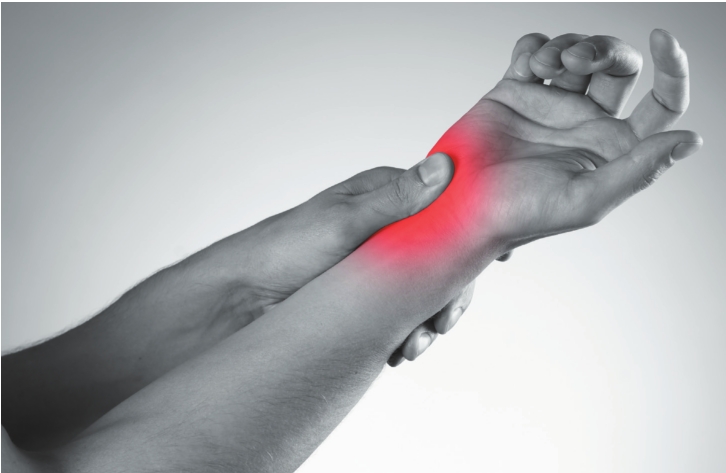WHERE DO YOU HURT?

Electromyography (EMG) and Nerve Conduction Studies (NCS) can help determine the exact cause of your pain
Pain affects more people in the United States than diabetes, heart disease and cancer combined.
According to the National Center for Health Statistics, approximately 76.2 million, or one in every four Americans, suffers from pain that lasts longer than 24 hours. Of those in pain, 27 percent suffer from lower back pain and 15 percent from neck pain. Pain keeps us from working and from leading an active, pain-free life. The New York Times reported in September that low back pain is responsible for approximately 60 percent of cases of people missing work, according to the Bureau of Labor Statistics, and carpal tunnel syndrome accounts for the greatest median number of days of missed work among the major industrial injuries and occupational diseases. What can we do about this epidemic of pain? Finding the exact cause is a good first step.
Last year the U.S. Department of Health and Human Services outlined the federal government’s first plan for reducing the burden of chronic pain that affects millions of Americans and costs the country upward of $635 billion each year. Because the panel of experts is not naïve to the fact that the United States is also in the midst of a prescription painkiller epidemic, the plan highlighted initiatives to increase patient knowledge of treatment options and to develop a better-informed health-care workforce with regard to pain management. Evidencebased, fact-based diagnostic tools are more important than ever for determining the exact cause of pain whether it´s lower back pain; neck pain; pain, tingling and numbness of the hand and fingers such as experienced with carpal tunnel syndrome; numbness, tingling, pricking sensations or muscle weakness such as experienced diabetic neuropathy; or pain related to unsuccessful neck or low back surgery. Nerve and muscle diagnostic testing is one of the most effective ways to determine the exact cause of neuro-musculoskeletal pain. These tests are performed by physicians trained as advanced diagnostic specialists.
EMG and NCS are effective tests to help determine how well the body’s electrical signals are traveling to nerves and muscles. Nerves control the muscles in the body by sending electrical signals that make the muscles react in specific ways. Nerve and muscle problems can cause the muscles to react abnormally and can be the cause of pain, weakness or numbness. EMG and NCS studies help diagnose or rule out nerve and limited to carpal tunnel syndrome, sciatic nerve disorder, herniated disk disease, polyneuropathy and neuropathy, peripheral nerve injury, pinched nerves or nerve trauma, true cause of back or neck pain, and unsuccessful neck or low back surgery. Electromyography (EMG) measures the electrical activity of muscles, and Nerve Conduction Studies (NCS) measure how well the nerves send electrical signals. These tests check how well your spinal nerves and the nerves in your arms and legs are working. The advanced diagnostic specialist examines only the muscles necessary to determine the cause of a patient’s pain. He will look at and listen to the electrical signals that
travel from the needle to the EMG machine and then read the signals.
The procedure usually takes approximately 30 to 45 minutes.
There are no side effects with ultrasound to diagnose neuromuscular and skeletal pain. An EMG is also a very safe procedure with no serious side effects. There is sometimes brief tingling of hands and feet after the electrical tests, and the needle tests may result in slight bleeding or small bruises or swelling at the insertion sites. Muscles may also ache for a few hours after the needle tests, but this is usually minimal.
If you are one of the approximately 76.2 million Americans experiencing chronic pain, don’t you want to know why you hurt? Evidence-based, fact-based tools such as ultrasound, Electromyography and Nerve Conduction Studies could be the non-invasive answers to an accurate diagnosis that can quickly help you return to an active, pain-free life without surgery and without a dependence upon prescription pain killers.
Dr. Stephen W. Wheat is triple board-certified in electrodiagnostic medicine, physical medicine and rehabilitation, and internal medicine with more than 25 years’ experience. He specializes in nerve and muscle diagnostic testing, practices medicine in Natchitoches and Shreveport and teaches at Baylor College of Medicine, Houston, Texas. Dr. Wheat has served as a member of the Mayo Clinic, Rochester, Minn., Professional Practice and Professional Program Committees of the American Association of Neuromuscular & Electrodiagnostic Medicine.
